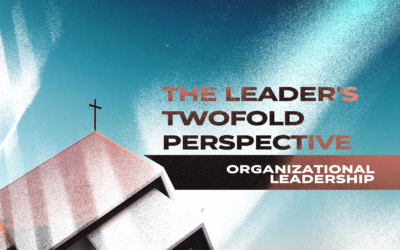Five Perspectives of Living in Limbo that Will Lessen Your Angst During the In-Between Times
Today’s post helps us through the desert by sharing the final two perspectives. Remember Perspective #1: View it as a Solid Step in Your Future Direction. And, part of that viewpoint is a willingness to change, as we saw in Perspective #2: Be Willing to Adjust Your Life’s Purpose and Direction.
Whereas the first two perspectives deal with personal viewpoints, Perspective #3 dealt with timing: Don’t Exit the Transition too Soon. So, Perspective #3 shows us that learning the lesson now prevents another remedial course later. And, failure to learn the present lesson means the lesson will likely be repeated.
With this post, we ready ourselves for entrance into the next phase of life. These two perspectives give you consolation now, but also ramp up your learning for what is to come.
Perspective #4: Review Your Rhythms
My desert times occur every four years, give or take a few months. My first big transition transitioned us from the Washington, D.C. area to Huntington, West Virginia. BIG transition. Three different schools in the third grade, then yet another school in the fourth grade. Eight years later a transition moved me to college. Four years after that we moved to Ft. Worth, Texas. Then, in another four years we moved to my first ministerial assignment. And, that first pastorate was three and a half years. So, you get the idea.
Does that mean I move every four years? No. But, it does mean every four years or so, something shifts in me. I enter the desert. Some of those transitions smack harder than others. A few transitions contain less pain or don’t take as long. But, simply knowing they will hit about every four years helps me navigate them. In my current role, I’ve served here for almost sixteen years. So, I did not move positions every four years. But I can say my role and what I do changed dramatically every four years or so. Even when you know your general transition times, how does that help? Reviewing your rhythms helps you evaluate where you have been and what you learned.
Here’s a part of one of my evaluations when I lived in the desert:


I pulled these two pages from my prayer journal several years ago. The one with the learnings may be harder to read. But I know evaluating what God did in me in the past gives me better perspective (and comfort) in the present. This approach can deepen your understanding of what God is doing while you wonder (and wander).
So, why not take a few minutes and outline your transitions?
Make three columns. In column one, write the new position. If it doesn’t have an official title, you label it to describe the new chapter of your life. In column two, write what the transition was. How long did it last? What happened right before the transition happened? (This helps as you move through life.) And, in column three, write what changed in you.

So, as you can see, your life contains (somewhat) regular rhythms. And, during those times of desperation and dryness, evaluation helps the hurt. I also feel despondent during those times. My heart says, “God, do you know I’m here?” “What must I change?” “Lord, use me any way you desire. And, it doesn’t feel like you are using me now!”
Heart-wrenching. Soul-stretching. Emotional expansion into areas you would rather avoid. Yeah. Stuff like that.
Know that God shifts your world to increase your kingdom impact.
Rich Halcombe
Furthermore, not only do desert times roil us personally, there is a collective experience of dryness, also. Not only do desert times occur with some regularity individually, desert times also affect us as human beings in (somewhat) regular intervals. Normal life adjustments also create those dry times. So, you live your own rhythms. But there are also life transitions, that happen with most people, that also affect you.
It generally happens about every ten years (or so). These transitions find each person and are somewhat common to human experience:
- Around age 20: Am I going to believe what my upbringing says to believe? Will my primary influencers’ values be my values?
- Around age 30: What am I going to do for a living? Typically neck deep in adulting by now. Arrival of adulthood and often a family, vocation and the end of formal training.
- Around age 40: Is this current path my destiny? If I’m going to do something different with my life, I better make the switch soon.
- Around age 50: What will I do after my work years? What has been my impact so far? What do the next 20 years look like? Who am I preparing in the next generations?
- Around age 60: What will be my legacy with my family and my work? Often approaching the end of the official work life. What is my identity? Transitions hit hardest here when the work has been the identity.
Another common dry time for people is the loss of a loved one or close friend. We know that hits hard. What often catches us by surprise, however, is the annual cycle of angst. Some label it “Anniversary Grief”. It rolls around each year at the time that important person died. Somehow the grief bakes into our neurology and into our calendar. The times of pain tend to shorten with the passing of years, but it occurs nonetheless.
So, what do you do in the desert? Perspective #4 tells us to Review Our Rhythms. If we only endure the desert, we leave a lot of learning in the sand. These desert times, wilderness breaks, are intended to teach us what we need for the next era. Perspective #4 teaches us from the past. Perspective #5 readies us for the future. And, at this point in the transition, you stand on the cusp of that next chapter of your life.
Perspective #5: Ready Yourself for the Next Chapter
The In-Between Times prepare us for what is to come. So, while in them, we need to get ready. This raises a great question:
How can I prepare if I don’t know the next assignment?
In the deepest of ways, you do know. At least some of it. Although not perfect, you do see part of what is to come. You see how life could be. You sense you were made for more than your present role. That “more” points you to the areas you can improve and learn in the present.
You may be:
- On staff, but feel God’s nudging you to be the Lead? Then, you can lead your current ministry as if it were a church.
- Not preaching/speaking now, but sense God’s direction that way? You can find and use speaking opportunities now.
- Need to be more organized for a larger role? Attend time management and goal-setting courses now.
As you approach the end of the transition, life picks up speed. Now’s neutral quickly shifts into drive at the end of the desert time. As the days drag on presently, the fast-paced days to come are hard to imagine. But, come they will. In your new chapter of life, you will be bombarded with new experiences, boatloads of questions and lots of expectations. So, prepare now for what is to come.
You can get ready now. Some ways to prep include:
- Read about the next role
- Meet with people who are doing it
- Adjust your current teaching/preaching
- Clean up any relationships or projects or your finances or your health
Interestingly enough, part of what creates the current restlessness is the realization that you were made for more than this (role). So, while you are in this role, ready yourself for the next one. Because the In-Between time comes to an end. And squeezing the learnings from the transition better equips you to succeed in the next chapter. Transitions are tough, but they are worth every minute.
In the comments below, what helped you when you were in the “desert” of life?
(Missed Parts 1 and 2? Catch up here and here.)
Who We Are
LeaderINCREASE helps leaders get clear on where to go and understand how to get there, with less hassle. We understand that choosing to make a difference as a leader isn’t always the easiest.
We focus on providing leaders with resources they need to make a difference and become actionable leaders for their organization. We look forward to helping you achieve your goals as we have done for many others.




